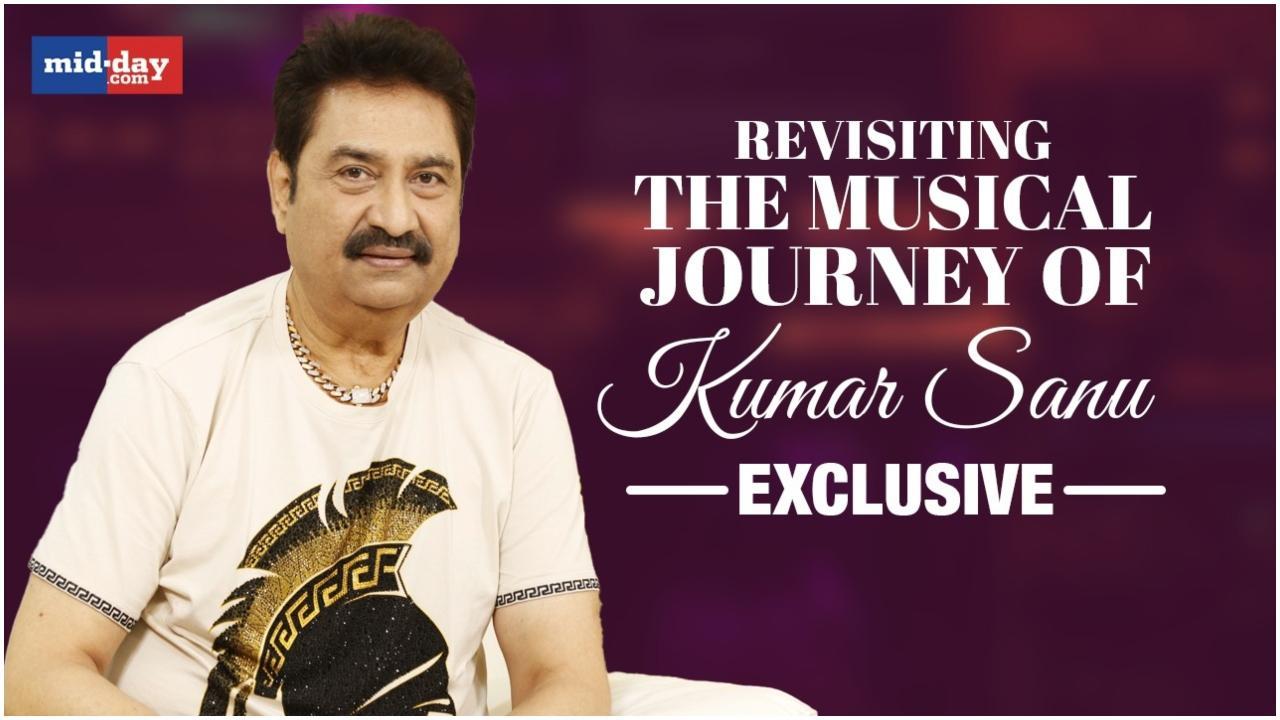On World Music Day, we take you back to the '90s with this exclusive conversation with singer Kumar Sanu on his journey from Kolkata to Bollywood

Kumar Sanu talks about his journey from Kolkata to musical stardom in Mumbai
For most of us '90s kids, Kumar Sanu's melodious voice has been an integral part of our lives. We cannot imagine Hindi films without his romantic songs like Nazar Ke Saamne (Aashiqui), Tujhe Dekha Toh (Dilwale Dulhania Le Jayenge) and Do Dil Mil Rahe Hain (Pardes). This World Music Day, we sit down with the legend to revisit his journey from a young tabla player in Kolkata to the 'Melody King' of Bollywood.
ADVERTISEMENT
Excerpts from a conversation:
Let’s go back in time a bit - how did the boy in Kolkata become this big musical superstar in Hindi cinema? Your father was a composer, did you always want to be a singer?
My aim was not to be a singer, even though I grew up in a musical environment in Kolkata. I used to play the tabla, and hum a few lines sometimes. I was forced to sing at a show in Naihati. My target was to be a tabla player, but when I saw the public is loving my singing, then my goal changed to that of becoming a singer.
How did the journey happen from Kolkata to Mumbai? Kedarnath Bhattacharya to Kumar Sanu?
I used to record my song on cassettes and give them to music directors in Kolkata. Some of them did not believe it was my voice. I used to save up money and buy those TDK90 cassettes, they were not cheap. I used to record one or two songs in those cassettes and give them to the music directors, and they would just keep them. I wouldn’t get them back. Some said, 'Kishore Kumar is alive, how do we make you sing?'
I realized I wasn’t going to make headway in Kolkata, there’s very little scope in West Bengal. There’s a lot of insecurity, and music directors do not have the confidence to try out a new singer. So I thought of going to Mumbai and trying there. I used to sing in hotels, so I had the confidence that I’d find a job in a hotel in Mumbai. I got a job at a restaurant called Amber in Churchgate in Mumbai. I used to make demo cassettes with the money I earned and give them to music directors in Mumbai.
Who was the first director who spotted the talent in you?
Obviously Jagjit Singh ji. I was making a demo cassette, and he saw me there and spoke to me. He was the one who made me record my first song. He introduced me to Kalyanji bhai. In the meantime, I was singing cover versions of Kishore Kumar’s songs for Gulshan Kumar. I was taking up whatever I could get. I just needed to keep singing. They used to send me to Delhi to sing covers of Kishore Kumar’s songs. And when Kalyanji bhai made me sing in a film, there was no turning back for me.
That was the turning point?
You can say that was the breakpoint. Chance by Jagjit Singh, break by Kalyanji-Anand ji and smash hit by Gulshan Kumar.
Coming from Kolkata, being a Bengali singer, was that a disadvantage?
It was definitely a disadvantage. I had to face difficulties because of it. But I solved the lyrical problem in singing by learning Urdu pronunciations from a Maulvi. I took training for 6 months. If you hear me sing in Urdu you cannot tell I am a Bengali.
Kishore Kumar has been a big influence on you…
Yes, people say my voice is similar to his. I don’t think I am even close to what he was. My first choice to sing used to be his songs. T-Series solidified that with their Kishore Ki Yaadein cassette series. It went up to 45 volumes! While singing those songs, I captured a lot of his nuances – style of singing, throw of words, acting in the song – I adopted all that. I implemented all that from Aashiqui onwards. But I never imitated his voice. From Aashiqui onwards, I tried to create my own identity.
Watch the full interview here:
 Subscribe today by clicking the link and stay updated with the latest news!" Click here!
Subscribe today by clicking the link and stay updated with the latest news!" Click here!







